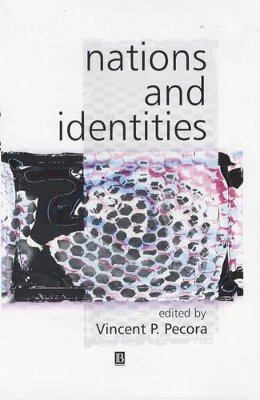
Stock image for illustration purposes only - book cover, edition or condition may vary.
Nations and Identities: Classic Readings
Pecora
€ 149.11
FREE Delivery in Ireland
Description for Nations and Identities: Classic Readings
Hardback. This work brings together selections from some of the most significant writings on the idea of national identity over the last 400 years. Beginning with Hobbes's and Locke's early formulations of the modern state, the excerpts chosen illustrate the rich history of the national idea. Editor(s): Pecora, Vincent P. Series: KeyWorks in Cultural Studies. Num Pages: 392 pages, 0. BIC Classification: HPS; JPA; JPFN. Category: (P) Professional & Vocational; (UP) Postgraduate, Research & Scholarly; (UU) Undergraduate. Dimension: 236 x 164 x 31. Weight in Grams: 682.
This anthology brings together selections from some of the most significant writings on the idea of national identity over the last 400 years and includes important contributions to contemporary debates in the social sciences and postcolonial studies.
This anthology brings together selections from some of the most significant writings on the idea of national identity over the last 400 years and includes important contributions to contemporary debates in the social sciences and postcolonial studies.
Product Details
Format
Hardback
Publication date
2001
Publisher
John Wiley and Sons Ltd United Kingdom
Number of pages
392
Condition
New
Series
KeyWorks in Cultural Studies
Number of Pages
388
Place of Publication
Hoboken, United Kingdom
ISBN
9780631222088
SKU
V9780631222088
Shipping Time
Usually ships in 7 to 11 working days
Ref
99-50
About Pecora
Vincent P. Pecora is Professor of English and Director of the Center for Modern and Contemporary Studies at UCLA. His book publications include Self and Form in Modern Narrative (1989) and Households of the Soul (1997).
Reviews for Nations and Identities: Classic Readings
"Pecora is an extremely thoughtful, intelligent, and substantial scholar. This book will be enormously helpful to students and teachers in colonial and postcolonial studies. The selections are wide-ranging and acutely chosen, and will allow students to connect history to the present, or better still, to see the present as part of a continuing, questionable history." Michael Wood, Princeton University ... Read more
